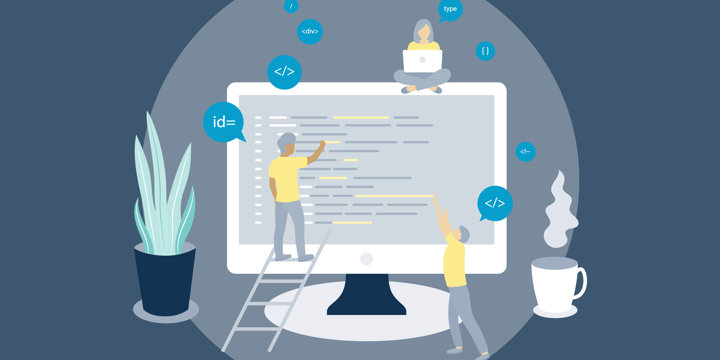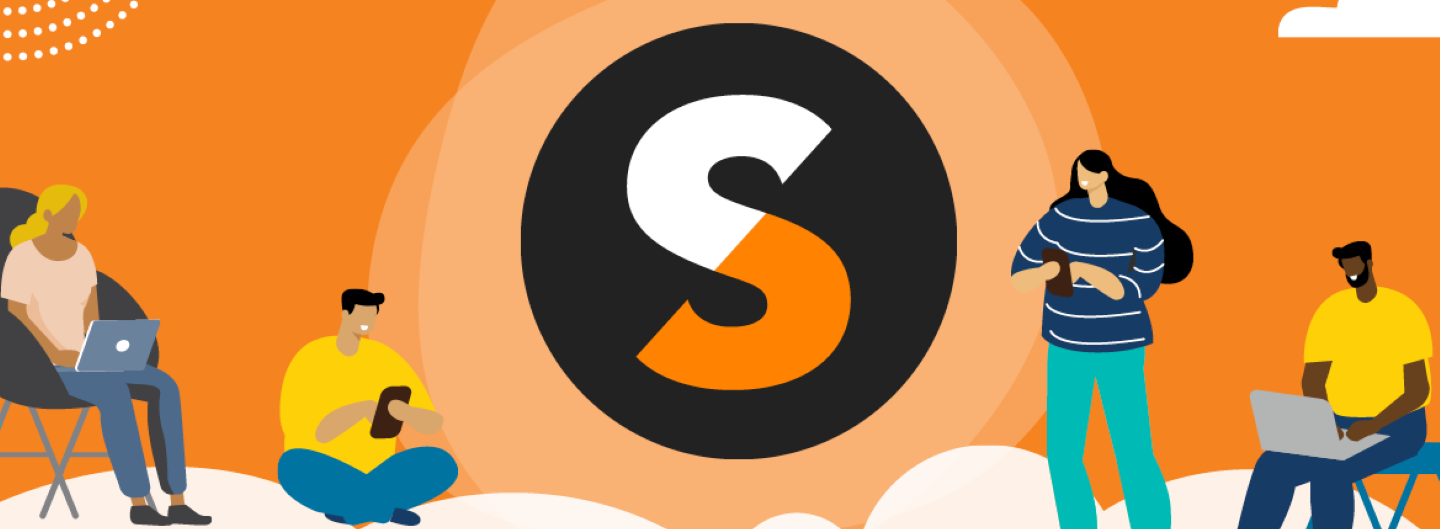Coding is an increasingly important skill and a great way for young people to develop their creativity, problem-solving, communication, and interpersonal skills. Here are three coding events engaging youth in Europe, the U.S., and beyond and inspiring the next generation!
The Increasing Value of Digital Skills
Code is the set of instructions that dictates a computer's activity: It is the backbone of the technology we use every day. Stoking interest in coding enables new generations to continue producing more efficient, intelligent, and sustainable technology. The current trajectory of global technological growth can only be maintained by hiring more smart, innovative, and able candidates with an excellent knowledge of programming. To facilitate this, more young people need to learn to code.
Digital skills are in high demand. Fifty-eight percent of all new jobs in STEM are in computing. Jobs in computer science are the number one source of new wages in the U.S., and they're set to keep growing. So learning to code can prepare young people for a promising (and well-paid) career. This is particularly true in STEM fields, but these skills are increasingly in demand in nontechnical industries. Holders of a bachelor's degree in computer science earn around $70,000 to $80,000 a year in strong markets. Software engineering specialists often make six figures, according to Glassdoor.
But coding also improves problem-solving skills by showing kids how to break a big challenge or problem into smaller, manageable chunks. Thinking logically in this way leads to more agility to tackle other issues in work and life in general. Overcoming problems and bugs while learning to code teaches students to be persistent when finding solutions.
Additionally, coding helps students learn to work together. By asking their peers questions and solving problems collaboratively, young people develop essential interpersonal skills that will be a massive help in school or work going forward.

Meet and Code
Now through September 8, European nonprofits can apply for grants through Meet and Code, which aims to make digital skills accessible to every young European. You can also participate in thousands of events funded by the initiative during EU Code Week (October 5 – 20). It provides grants up to 500€ to charitable organizations that facilitate events to introduce people aged 8 to 24 to technology and coding. It's offered by Haus des Stiftens and TechSoup Europe along with 19 local TechSoup partners in 25 European countries. Meet and Code is powered by SAP.
These events include hackathons, workshops, classes, and other programs that fulfill the overarching goal of making programming exciting and accessible. In 2018, 50,000 young people took part in 1,100 programming events.
We think the Meet and Code Award is a particularly special feature of Meet and Code, giving a 2,000€ grant to the best event in each of four categories. The Meet and Code team has identified some issues in STEM and is tackling them head-on. They do this by choosing award categories that address environmental or social problems in technology. The awards also align with UN Sustainable Development Goals, including Gender Equality (5), Climate Action (13) and Sustainable Cities and Communities (11).
Meet and Code's Girls Do IT! and Diversity award categories help to encourage underrepresented groups to take part in programming events. These include women, minority ethnic groups, those with hearing or vision disorders, juvenile prisoners, and many more. The Code for the Planet category highlights events that make a positive environmental impact through programming. The Community category seeks projects with a local focus.
Unfortunately, if you're not Europe-based, you aren't eligible for this grant. However, you can still spread the word about Meet and Code. Take a look at some of last year's finalists and share these inspirational stories with your community, using the hashtag #meetandcode.
Hour of Code
December 9 – 15, 2019, is Computer Science Education Week, when Code.org organizes Hour of Code. Hour of Code is designed to show that anyone can learn the basics of coding, or even facilitate a session where others can learn! We're featuring this because it's a super accessible, worldwide initiative that is a great way to introduce beginners of any age to coding.
Materials are available in over 45 languages, with versions that work on a smartphone or even with no computer at all. There are tutorials suitable for kindergartners upwards, and each tutorial is accessible to absolute beginners. You can register through the Hour of Code website to attend an Hour of Code near you or start organizing one yourself.
No matter where you are in the world, Code.org is a fantastic nonprofit providing the materials needed to learn to code to anyone, absolutely free. It's used widely in U.S. schools and has a focus on increasing access to coding for women and minorities.
FIRST (For Inspiration and Recognition of Science and Technology)
Until late September or early October (depending on your region), you can register to start a team or sign a child up to join the FIRST league for the 2019/2020 season. Children aged 6 – 18 in over 100 countries are eligible to sign up and join a team. Teams will take on a real-world problem and aim to solve it by designing a robot, with increased emphasis on design and programming as well as problem-solving for the higher age groups. You don't need any prior knowledge or experience to enable young people in your area to take part in their competitions.
There are also lots of ways to volunteer at local events, at championships, as a mentor, or even full-time through AmeriCorps. FIRST is 99 percent volunteer run, so giving up your time and energy keeps the organization alive, as well as invigorating and encouraging young people to improve their digital skills.
In preparation for the competitions, teams participate in guided meetings designed to introduce them to the relevant topics and teach them the skills they need to be successful. The competitions for younger children involve learning basic scientific concepts by building motorized models using LEGOs. Older participants design, build, and program a robot using coding skills they've developed in the lead-up to the competition.
FIRST was founded in 1989 with the aim of inspiring and enabling young people to participate in science and technology. Besides gaining essential and transferable skills like communication, problem-solving, and conflict resolution, FIRST's alumni are significantly more likely to show an interest in engineering. Over 75 percent of FIRST alumni are now in the STEM field as students or professionals, and their programs are helping solve real-world engineering problems. Furthermore, FIRST is making programming skills available to women and to marginalized and high-poverty groups, which is likely to impact the accessibility and diversity of the STEM sector.
Sharing the Joy of Coding
These exciting initiatives create incentives that excite young people in gaining technology skills to develop solutions to the world's most pressing problems. Youth are nurtured, recognized for their achievements, and encouraged to build critical life skills that will stay with them long after they participate in these events. Follow, celebrate, and support these fantastic programs!








